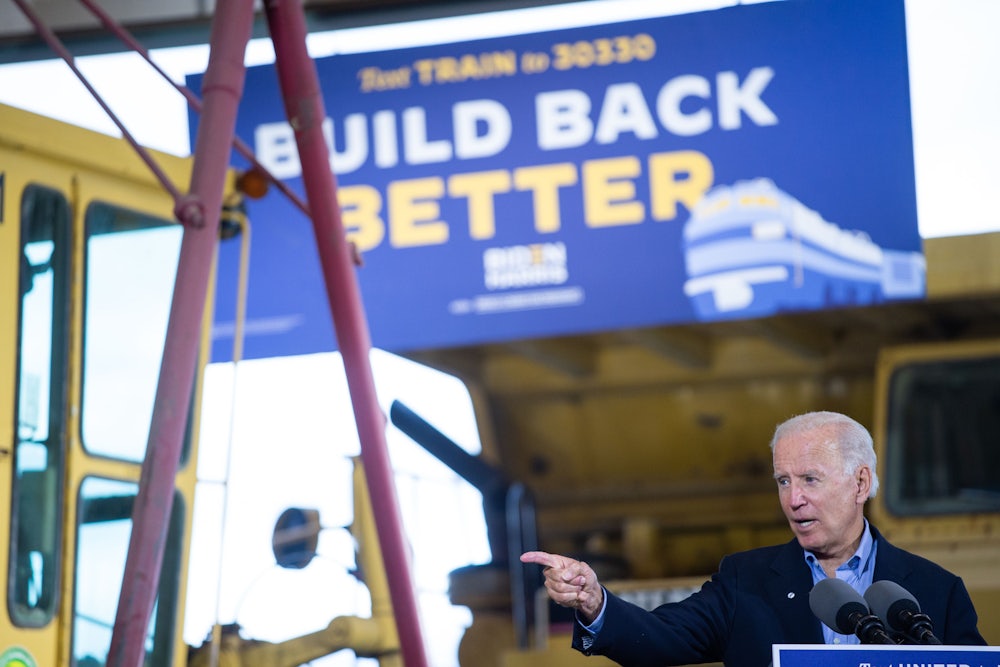According to Friday’s official jobs report—the last one that the Bureau of Labor Statistics will release before November’s election—the economy added around 661,000 jobs in September. Since unemployment is down slightly, it’s probably a safe bet that Trump will seize upon the numbers as proof of his exceptional economic stewardship, as he has in the past. (“Under this Administration, America is on track to witness the fastest labor market recovery from any economic crisis in history,” the White House announced last month, though the unemployment rate remained at a dismal 8.4 percent.)
But dire news rode in right on the eve of the report’s release: Airlines announced tens of thousands of layoffs after a new stimulus package stalled again in Congress, with more losses likely on the way. Earlier this week, Disney, too, said it was laying off as many as 28,000 employees nationwide. No matter what the official jobs report suggests, the country is still barely treading water in an economic crisis that Trump and congressional Republicans appear to have scant interest in alleviating. Trump has maintained some oddly durable public opinion advantages over Biden in terms of his handling of the economy, but here in the election’s stretch run, Democrats have the perfect opportunity to hammer Trump on jobs, particularly in light of some bleak signs that the recovery from the current recession will be vastly more unequal than the last’s.
Yet Democrats’ attention seems to be wandering. In the wake of this week’s presidential debate—a miserable slog that mostly annoyed viewers and consisted of little more than Trump bellowing over Biden and moderator Chris Wallace—Trump’s critics have chosen to go after him for something that’s hardly revelatory: his lack of decorum. Appearing on Morning Joe on Wednesday, Nancy Pelosi, incredibly, even managed to compliment Republicans of yesteryear while criticizing Trump. “The country needs a strong Republican Party,” she said. “It’s done so much for our country, and to have it be hijacked as a cult at this time is really a sad thing for America.” Of all the sad things that America is now facing, I would submit that a weakened Republican Party doesn’t rank especially high.
Others have fixated on the president’s failure to disavow white supremacists during the debate. “All Republican lawmakers defending President Trump—and all Americans planning to vote for him over the next five weeks—must be made to confront a simple truth: They are supporting a candidate who embraces violent white supremacists,” Washington Post columnist Dana Milbank declared. On Thursday, MSNBC’s Steve Benen echoed the sentiment. “It’d be easy for the president to go through the motions, condemn white supremacists and other right-wing radicals in no uncertain terms, and leave others to speculate about his sincerity,” he wrote. “But Trump apparently doesn’t want to.”
But if Trump’s conduct during the debate—and his Proud Boy elbow-rubbing in particular—was unquestionably ugly, it was also entirely predictable. Given his long-standing penchant for winking in the direction of the far right, I suspect there aren’t all that many voters left who need to be reminded that Trump is a boor or that he’s not terribly inclined to condemn an enthusiastic (if hateful) segment of his base. Rather, the make-or-break issue over the next few weeks probably won’t be the Proud Boys—who are, for their part, a group of violent dummies who struggle mightily to assemble a rally of a few hundred supporters—but whether the Democrats can demonstrate the utter brokenness of the economy and the callousness of the Trump administration’s approach to it.
Americans still tend to think of Republicans as more adept at handling the economy than Democrats, and it’s been difficult for Democrats to dislodge that perception. Even at the nadir of the current recession, as my colleague Alex Shephard wrote last month, Trump still held a slight edge on the economy in polls of voters. Yet, at the same time, unemployment remains high despite the slight uptick in jobs over the last two months, and the Bureau of Economic Analysis recently found that the expiration at the end of July of the $600 federal unemployment insurance supplement—which congressional Republicans and the White House have staunchly refused to reinstate—sapped an estimated $667 billion from the U.S. economy.
The human cost of the economic crash also appears to be sharpening. In addition to food banks still overwhelmed by demand and state unemployment offices backed up for weeks, up to 179 million Americans could soon face shutoffs of water, power, and other utilities as a result of unpaid bills during the pandemic, according to The Washington Post. Whatever on-paper improvements to the economy Trump and the Republicans can point to will likely ring hollow with those skirting the edge of financial ruin.
But Democrats will have to make this case if they want to bring about Trump’s ouster. And so the time and attention lavished on listing all the ways that Trump violated the norms of this week’s debate, rather than pressing him on why a new stimulus has stalled, makes it likelier that the president will successfully convince Americans that he’s saving the economy, rather than consigning the majority of Americans to further hardship. Trump’s Proud Boys imbroglio has garnered a significant share of negative attention; the pile-on has been enabled. Rather than focus on the wounds the president has inflicted on himself, Democrats should take care that the wounds he’s inflicted on the nation receive the same share of outrage.
